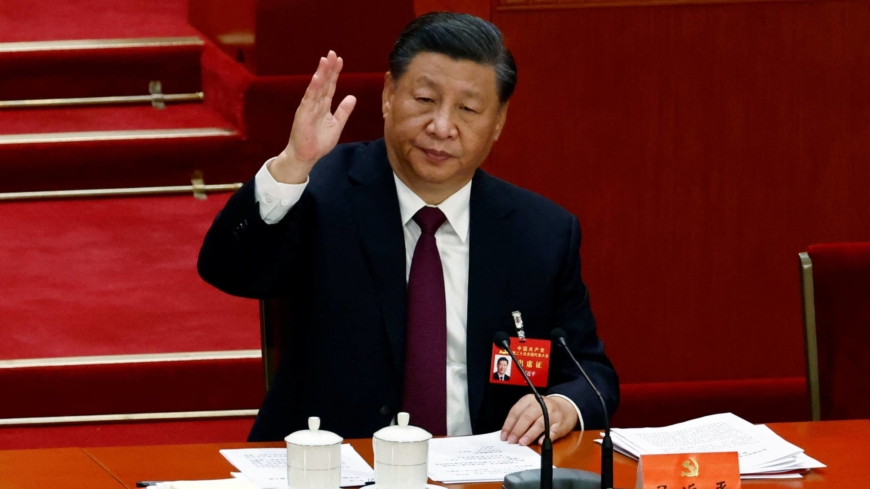


In his address to the open plenary session of the 15th BRICS Summit in the South African city of Johannesburg, Chinese President Xi Jinping said that BRICS countries should expand political and security cooperation and maintain peace and tranquility. Xi also said that the BRICS nations should oppose economic coercion and focus on business cooperation.
The Chinese leader also remarked that the cold war mentality still persists today. Terming the geopolitical situation as grim, the Chinese President said that BRICS countries should practice true multilateralism and oppose division. All these observations made by Xi Jinping actually expose China’s doublespeak, duplicity and hypocrisy on all these issues. There is no doubt about the fact that China does not practice what it preaches. On one hand, China’s Xi speaks about the increasing need for solidarity and opposing division in the bloc, on the other hand, it remains engaged in coercive and aggressive activities against Taiwan. Xi suggests the BRICS to focus on promoting multipolar world order. But the fact is that China is the only country among the five permanent members (P5) of the United Nations Security Council (UNSC) which continues to oppose India’s entry into the highest body of the UN. Did Xi ever practice what he preached at the BRICS summit in Johannesburg? China needs to answer this question. Why does China not maintain peace and tranquility in the South and East China Seas? Entire world witnessed how China violated long standing agreements with India to maintain peace and tranquility in the Himalayas. Does China ever follow the codes of conduct for the SCS? China’s coercive and aggressive actions against Taiwan have been on the rise. At several international forums, External Affairs Minister S. Jaishankar has blamed China for the current tense situation along the Line of Actual Control (LAC), saying that Beijing violated written agreements by amassing forces along the border. There is plenty of documentary and imagery evidence to show that China through its military action at Galwan in Ladakh, violated three key bilateral agreements—1993, 1996 and 2013—that have been central to maintaining peace and tranquility on the disputed LAC. Similarly, China does not believe in respecting territorial integrity and sovereignty of other countries. Its aggressive behavior in various geographies including on LAC is the proof of this. It is a fact that the Chinese government, for the past several years, has repeatedly tried to intervene in the domestic policy of different countries. In 2018, the Chinese leaders made efforts to unite the communist forces in Nepal. China has made similar attempts also in Bangladesh where the Chinese Ambassador had tried to influence Dhaka’s independent policy position on Quad.
There are hundreds of examples that expose China’s double-speak on the issue of respecting sovereignty and territorial integrity of other nations. That China continues to intervene in internal matters of other countries is beyond any doubt. China terms the Taiwan issue as “an internal matter to be resolved by the Chinese people” but adopts a different stance on the question of Beijing’s attempted intrusions in Ladakh, saying that the “boundary issue between the neighbours was a historical blunder”.
Xi Jinping or any other Communist leader from China must answer these questions. What they say in terms of respecting territorial integrity of others actually exposes their own contradictions and hypocrisy. At the joint briefing after the BRICS summit in Johannesburg, Prime Minister Narendra Modi appropriately used the platform to highlight the fact that the expansion of the grouping is a message to all global institutions. In a message to countries like China and other Western nations, Modi said that the decision to expand BRICS will also further strengthen the belief of many countries in a multipolar world. In other words, PM Modi’s remarks emphasizing the need for other global institutions to carry out expansion on the lines of BRICS should be seen as a clear-cut message to Xi Jinping amid China blocking India’s efforts to get an entry into the UNSC as a permanent member.